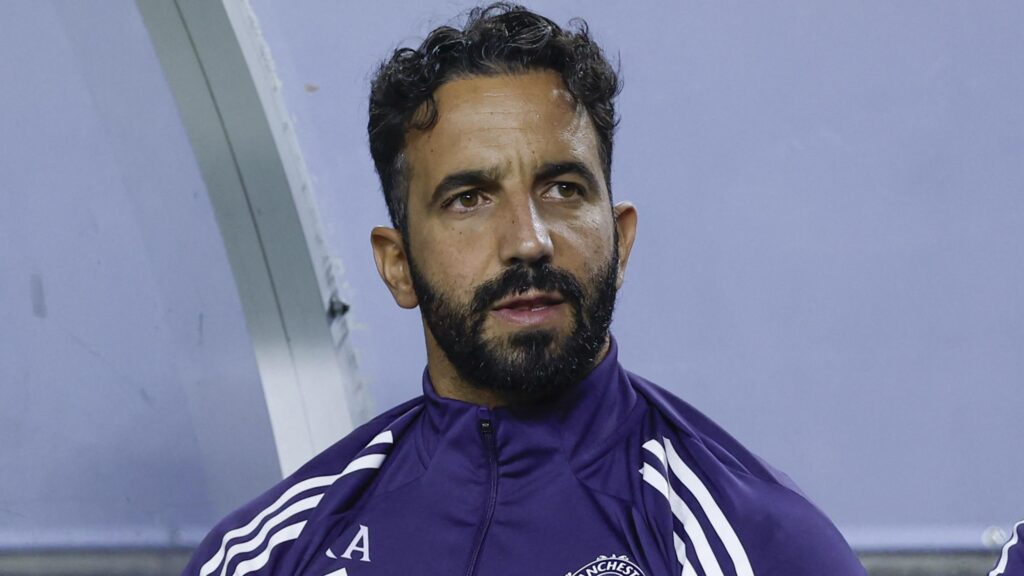Ruben Amorim, the current manager of Manchester United, has openly discussed the struggles and emotional toll he faced during his first season in charge. In a candid interview, he shared his anxieties leading up to matches, expressing that he often traveled to games feeling apprehensive about the potential for poor performances. This sentiment arose during a particularly challenging campaign, where United endured its worst performance since the 1973-74 season, finishing a dismal 15th in the Premier League.
Amorim took the reins at Manchester United in November 2024 after the dismissal of Erik ten Hag. During his tenure, the team managed just seven wins from 27 league matches, which culminated in a heartbreaking Europa League final loss to Tottenham. The manager recounted how returning home to his family after each defeat was not as difficult as the moments leading up to the games. “It was how I left to go to the games,” he remarked, revealing his anticipation of struggle. The anxiety weighed heavily on him, acknowledging that he often felt the team would not be competitive.
However, the narrative has begun to shift as Amorim approaches the new season with a more optimistic outlook. He described his current perception as less “romantic,” yet still filled with hope about the team’s potential, citing signs of progress. With a renewed sense of belief, he has stated that the current culture at the club is undergoing transformation, and he is committed to leading the team back to success.
In a lengthy interview conducted at the Chicago Fire training facility, Amorim elaborated on various facets of his coaching role, including his interactions with minority owner Sir Jim Ratcliffe. He emphasized his hope of returning United to the pinnacle of football, suggesting that the club possesses unique qualities—such as its history, pedigree, and passionate fan base—that cannot be replicated and will aid them in reclaiming their status among Europe’s elite.
As part of his efforts to cultivate a winning mentality within the squad, Amorim has fostered an environment where standards are uplifted. He has instituted a leadership group comprising six players, including Bruno Fernandes and Harry Maguire, to help maintain discipline and promote accountability. He acknowledges the importance of communication and setting clear expectations, and he has refused to relinquish his tactical principles, despite facing criticism during last season’s trials.
Amorim’s approach to team culture is unwavering. He expressed that “I don’t treat the players as babies,” affirming that he expects them to rise to the occasion and adhere to the rules he has set. During his challenging first season, he often reflected on whether his decision to leave his previous club, Sporting CP, was wise, given his heightened status there. Yet, he is resolute in his aspiration to succeed with Manchester United, pointing out that retaining his position as manager amid disappointing results signifies strong backing from the club.
In addressing the pressure that inevitably accompanies managing such a prominent club, Amorim remarked that his experiences navigating injuries during his playing career instilled in him a resilience that carries through to his current role. His ultimate goal is to be at the helm of Manchester United for an extended period—ideally, 20 years.
As pre-season progressed, Amorim noted potential signs of improvement on the pitch. The team demonstrated a more cohesive and energetic performance, particularly in their recent 4-1 victory against Bournemouth. Despite some challenges, including managing certain player relationships, he maintains a forward-looking perspective on the season ahead. With expectations to return to Europe and ascend to competing for major trophies, Amorim is committed to transforming Manchester United’s fortunes on the football field.
In conclusion, Ruben Amorim is navigating his role as Manchester United’s manager with a blend of realism and hope. By addressing previous struggles, fostering a solid squad culture, and instilling confidence in his team, he aims to lead a revival that reestablishes the club’s status in English and European football.












